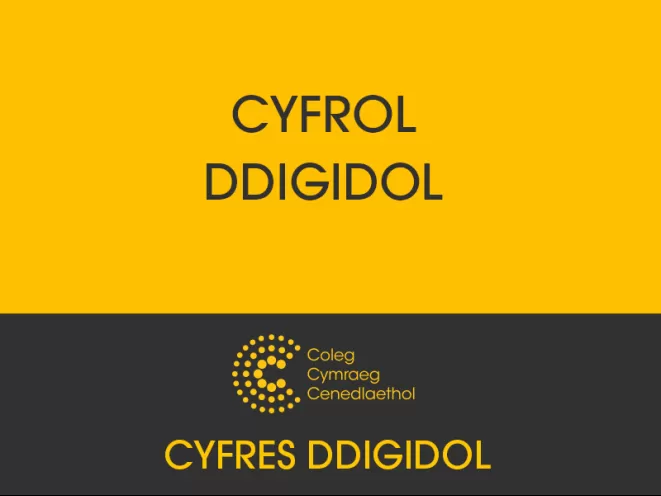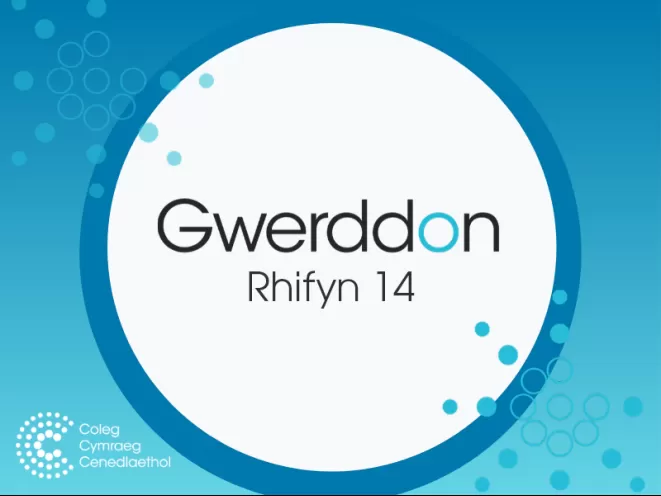Dyfyniadau o areithiau ac erthyglau gan E. T. John, Aelod Seneddol dwyrain Sir Ddinbych yn ystod y Rhyfel Byd Cyntaf, cenedlaetholwr Cymreig a heddychwr. Roedd yn aelod o'r Blaid Ryddfrydol hyd 1918, pan ymunodd â'r Blaid Lafur. Cyhoeddwyd gyntaf yn 1918.
Ar Gwestiynau Rhyfel a Heddwch – E. T. John
Areithiau Eisteddfod Aberafan – J. R. Jones (gol.)
Casgliad o bedair araith gan J. R. Jones, Siôn Daniel, Emyr Llywelyn ac Alwyn D. Rees a draddodwyd yn Eisteddfod Genedlaethol Aberafan ym 1966 yn trafod ymgyrchu dros y Gymraeg a lle gweithredu anghyfreithlon yn dilyn ethol aelod seneddol cyntaf Plaid Cymru, Gwynfor Evans.
Edward Lhuyd annual lecture
The Edward Lhuyd Lecture is an annual presentation on various aspects of academic and contemporary life in Wales and the world. The presentations cover a wide variety of themes including geology, literature, ecology or history. The lecture is organized between the Coleg Cymaeg and the Learned Society of Wales. Note, there were no lectures in 2020 - 2022 due to Covid-19.
Cynhadledd ‘Boddi mewn Celfyddyd’: Gwaddol ’65
Hanner can mlynedd ar ôl boddi Tryweryn, trefnwyd cynhadledd i gasglu ynghyd a gwerthfawrogi’r gwaddol celfyddydol a ysbrydolwyd gan foddi’r cwm mewn cynhadledd deuddydd mewn lleoliad arbennig nid nepell o Dryweryn. Yn ystod y gynhadledd, traddodwyd darlithoedd gan Dafydd Iwan a Manon Eames, a chafwyd arddangosfa aml-gyfrwng unigryw yn dogfennu hanes y boddi, a’r cynnyrch celfyddydol a grëwyd yn ei sgil. Cafwyd hefyd gyfle i ymweld â Thryweryn a chlywed am brofiadau ac atgofion Aeron Prysor Jones am foddi’r cwm, yn ogystal â mwynhau detholiad o’r ddrama Porth y Byddar gan Manon Eames, o dan gyfarwyddyd Siwan Llynor. Noddwyd y gynhadledd gan y Coleg Cymraeg Cenedlaethol a Phrifysgol Bangor.
Deconvolution of the complex modulus in linear viscoelasticity
The relaxation spectrum of a viscoelastic material holds the key to describing its relaxation mechanisms at a molecular level. It also plays a fundamental role in accessing the molecular weight distribution, and in modelling the dynamics of complex uids. The relaxation spectrum cannot be measured directly, but it may be locally determined from experimental measurements of viscoelastic response at a macroscopic level. In particular, the relaxation spectrum is a continuous distribution of relaxation times which may be recovered, at least locally, from measurements of the complex modulus of the material. Although mathematical expressions for the continuous spectrum have been known for over a century, these were inaccessible to numerical implementation for decades, since they involve inverse operators which are not continuous, resulting in severe instability. Progress was made when regularization methods for approximating discrete line spectra were introduced some two decades ago. It was not until 2012, however, that Davies and Goulding proposed a method of wavelet regularization for recovering continuous spectra in a mathematically rigorous framework. This work was further re ned in 2016 by introducing a mathematical form of high-order derivative spectroscopy involving sequences of derivatives of dynamic moduli, termed Maclaurin sequences. In this article, a rigorous justi cation for the use of Maclaurin sequences is presented. Furthermore, a new sequence is presented, which is termed a wavelet correction sequence, achieving the same accuracy as Maclaurin sequences, but with a reduced order of differentiation.
Academi Cynhadledd Achos
Mae'r clipiau yma yn olrhain hanes cynhadledd achos er mwyn gwarchod plant. Mae’r clipiau yn cynnig enghraifft i fyfyrwyr o’r modd y cynhelir Cynhadledd Achos. Yn yr achos hwn, trafodir dau blentyn ifanc o’r enw Siân a Dylan. Mae Siân yn bump oed, a Dylan yn fabi deunaw mis oed. Pwrpas cynnal y Gynhadledd Achos yw i benderfynu a ddylai’r plant barhau ar y gofrestr amddiffyn plant ai peidio. Mae'r fideo wedi ei rannu mewn i 8 rhan. Dychmygol yw’r cymeriadau yn yr adnodd hwn, ond mae’r math yma o sefyllfa yn gyffredin iawn o fewn cyd-destun y Gynhadledd Achos.
Gwerddon: Greening a desert? Some comments on the history of a Welsh-language e-periodical
The article considers the history of Gwerddon, a multi-disciplinary research e-journal launched in April 2007, which has to date (January 2019) published more than one hundred original articles. Its origins lie in the growth of Welsh-language teaching in Welsh universities in the 1970s and 1980s, the campaign to establish a Welsh-language federal college at a time when the federal University of Wales was in crisis, and the urgent need for Welsh-language scholarship to be equally represented in the research assessment exercises of the RAE/REF. The study considers the journal’s impact factors and its role in the development of a Welsh presence on the burgeoning web of the early twenty-first century, and argues that its continuation rests both on Welsh Government educational policy in general, and the financial resilience of the Higher Education sector at a time of severe challenges.
Health and salvation: medicine, the body and the moral order in colonial Bengal 1840-1935
Drawing on a rich seam of archival material on Welsh missionary activity in late nineteenth- and early twentieth-century Bengal, the article addresses ways in which care of the sick became a central, if problematic, part of Christian Mission. While the building of dispensaries, clinics and hospitals provided both a platform and a social visibility to the evangelisation process, they also exposed deeper tensions around the politics of gender and the implantation of Western medical practices in a colonised society.
Minority nationalist parties and their adaption to devolution: A comparative study of Plaid Cymru and the Bloq...
In many places, devolution has created new regional arenas within which minority nationalist parties have been highly successful in mobilising support for their national projects. However, scholars have paid scant attention to how minority nationalist parties have adapted as they have become major players in regional politics. This article examines such process of adaptation in the cases of two minority nationalist parties: Plaid Cymru in Wales and the Bloque Nacionalista Galego in Galicia. It is argued that the experiences of these parties in adapting to passing the thresholds of representation, relevance and government in their respective regions are far from unique. Rather, they reflect the challenges that any political party faces when it makes the transition from protest to power.
Wales, nationality and national theatre: Following suit or breaking new ground?
This article is a study of the relationship between nationality and national theatre in Wales from the nineteenth century up to the present day. Welsh nationality is considered in the context of contemporary discussion by the pioneering critics Umut Özkirimli and Hans Kohn on concepts of the nation. The article aims to look into the crucial questions which arise from the historical and current relationships between national theatre, as an arts exercise, and a political expression of national identity in Wales. The significance of national theatre as a tool for expressing national identity is assessed and it is questioned whether the new national theatres of the twenty first century refer back to traditional concepts of the nation and nationality or do they instead exercise a new kind of modern nationality which is defined as ‘an interaction of cultural coalescence and specific political intervention’?
(Performing citizenship: Sisters, a joint production between National Theatre Wales and Junoon Theatre Mumbai)
This article seeks to interrogate the ways in which the citizens of Wales use the theatrical resources at their disposal to investigate and articulate their national identities and experiences. The discussion will take a recent co-production, entitled Sisters, between National Theatre Wales and Junoon Theatre Mumbai as its starting point. Sisters stimulates discussion of new ways of creating and participating in theatre that respond creatively to the challenges of a twenty-first century global, digital and post-consumerist society. In discussion, this article will use Johannes Birringer’s uncompromising vision of theatre as a transformative activity that focuses on patterns of collaboration between unfamiliar and unrooted individuals, as a measuring yard for the success and significance of Sisters. I will also argue that the social conditions that inspired Birringer’s vision also give fresh importance to Amelia Jones’s argument about the value of responding to a production or performance by means of secondary evidence, or ‘detritus’, as described by Mathew Reason.
Archwilio Cymru'r Oesoedd Canol: Testunau o Gyfraith Hywel
Mae'r ddogfen hon gan Sara Elin Roberts a Christine James yn cynnig cyflwyniad cyffredinol i Gyfreithiau Hywel Dda, sef cyfreithiau brodorol Cymru yn yr Oesoedd Canol, trwy roi 'blas' i'r darllenydd ar yr amrywiaeth eang o feysydd gwahanol sy'n cael eu trafod yn y llawysgrifau gwreiddiol - meysydd mor amrywiol â chyfraith Gwragedd a Gwerth Offer, Coed a Chathod, rheolau ynghylch Tir, a Thrais, a Theulu'r Brenin... I gynorthwyo'r darllenydd amhrofiadol, ac er mwyn annog astudiaethau yn y maes, gosodwyd y detholion o'r testunau Cymraeg Canol gwreiddiol ochr-yn-ochr â 'chyfieithiadau' ohonynt mewn Cymraeg Diweddar. Mae rhagymadrodd byr i bob pwnc yn ei dro, a llyfryddiaeth ddethol ar ddiwedd pob uned ar gyfer darllen pellach. Dyma gyfrol a fydd o ddiddordeb a defnydd i bawb sy'n ymddiddori yn hanes y Gyfraith, hanes Cymru neu lenyddiaeth Gymraeg yn yr Oesoedd Canol. Ceir llawer mwy o wybodaeth am Gyfraith Hywel Dda ar wefan Cyfraith Hywel:












